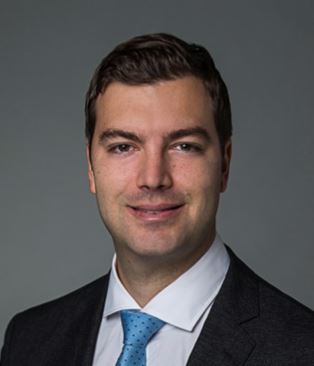We encourage judges, lawyers, jurors, and concerned citizens to submit articles for our consideration, either by clicking this link or by emailing research fellow Michael Pressman at michael.pressman@nyu.edu.
***
September 3, 2020
The Verdict Is In: Online Jury Trials Are Possible
By Michael Shammas, Research Fellow
“In our May newsletter, at the prescient suggestion of our late founder Steve Susman, Research Fellow Michael Pressman and I wrote a memorandum regarding the constitutional and practical viability of virtual jury trials…”
September 2, 2020
Advocacy’s New Frontier: SMART TM Persuasion Strategies for Remote Communication
By Benjamin Perkel, J.D., Jury Consultant Advisor
“Welcome to the “new frontier.”
Remote hearings, remote depositions, remote mediations/arbitrations, remote settlement conferences, remote witness preparation.[i] The list goes on and on. Remote communication is progressively replacing traditionally in-person interactions between attorneys and Judges, as well as between attorneys and their clients, co-workers and opposing counsel…”
September 2, 2020
Results from Our Survey of Judicial Advisors Regarding Juror Demographics
By Michael Pressman, Research Fellow
“This month, we sent a survey to our Judicial Advisors that contained a variety of questions about what they have recently been observing in their courtrooms regarding juror demographics. In June, the NCSC (National Center for State Courts) asked 1000 people whether they would prefer serving as a…”
August 8, 2020
Remote Jury Selection During a Pandemic
By the Honorable Jack Tuter
August 3, 2020
A Response to Michael Pressman’s “The Challenge of Achieving a Representative Cross-Section of the Community for Jury Trials during the Pandemic”
By Oscar Bobrow & Lois Heaney
“We take issue with Research Fellow Michael Pressman’s analysis in the Civil Jury Project’s July newsletter that a challenge to under-representation based on race or sex stemming from the impact of post-COVID jury policies would fail because ‘courts have no control over the virus’ and thus, such policies ‘would not be systematic exclusion.’
“The theory is wrong and should fail. To the contrary, it is fully within courts’ control to devise responses to the coronavirus that do not result in exacerbating underrepresentation of already underrepresented groups…..”
July 30, 2020
The Challenge of Achieving a Representative Cross-Section of the Community for Jury Trials during the Pandemic
By Michael Pressman, Research Fellow
“The challenges presented by the current pandemic have seemingly affected all areas of society, and jury trials are no exception. As courts seek to resume jury trials, they confront a number of obstacles, one of which will be the focus of this article: how to avoid running afoul of the Sixth Amendment’s guarantee that a jury be selected from a representative cross-section of the community.
“There are two ways in which jury trials during current times might confront this obstacle. First, as in-person jury trials resume in courthouses, there is a concern that certain segments of the population might be more likely than others—as a result of their concerns about health risks of in-person jury duty—to either not report for jury duty or to be excused. Second, to the extent that courts carry out jury trials where jurors serve remotely over videoconference, there is a concern that certain segments of the population might be excluded either due to not possessing the necessary technology or due to not having sufficient facility or comfort with the technology…”
July 29, 2020
Better By the Dozen: Bringing Back the Twelve-Person Civil Jury
By Hon. Patrick E. Higginbotham, Hon. Lee H. Rosenthal. & Professor Steven S. Gensler
“This might seem an odd time for an article about restoring 12-person civil juries. As we went to final editing with Judicature, most courts had put civil jury trials on hold due to the pandemic. We considered delaying publication, but after thinking about it, we came to believe that this is a critical moment.
“Civil jury trials are already starting to return. As they do, some may urge us to use smaller juries to reduce the size of venires and make social distancing easier. We cannot ignore these practical points. But neither should we let these short-term concerns overtake all else or chart our long-term path. We have an opportunity, and a need, to remind ourselves why twelve jurors was for centuries the standard, and why it remains so in criminal cases. The civil jury post-2020 may run a little differently than it has before, but it remains a group tasked with making consequential judgments through a collaborative process. Whether those people are together in a courthouse or on a computer screen, that process works best when jurors deliberate by the dozen….”
July 28, 2020
Suggestions for Remote “Zoom” Jury Selection
By Stephanie Parker and Jennifer Weizenecker
“Even in-person jury selection is a complex process with many moving parts. Moving to a remote platform would amplify those complexities. The following could potentially mitigate those new difficulties, helping jury selection succeed in a remote platform.
“Panel Size
“One consideration for implementing remote jury selection procedures is scale. The court and counsel will want to see every juror who is actively participating in voir dire . But even a group of 50 prospective jurors would be unworkable with the limitations of current, commonly used technology, including limited screen size and the number of participants visible in a virtual meeting room. During the mock trial, 12 potential jurors participated in voir dire . If a trial requires a large number of potential jurors, it will be necessary to divide the group into smaller panels (likely no more than 12 jurors), so that they are all visible and able to communicate effectively with the judge and counsel. Voir dire could be conducted one group at a time and repeated until enough jurors remain after hardships and cause challenges to begin peremptory strikes….”
July 27, 2020
By Sofia Adrogué
Cognizant there are no words to describe the loss for many personally and professionally, here’s to the Sui Generis SDS. Indulge me as I attempt to set forth below select descriptive words for an indescribable person. I had the luxury of meeting Steve 30 years ago, working for and learning from him at Susman Godfrey, trying a case with him in federal court in Puerto Rico, having the honor of preparing with him as he participated in the Trial of Hamlet in federal court, and, most impactfully and unforgettably, benefitting from his encouragement and guidance as the Editor of ALM’s Texas Business Litigation, with the forthcoming 5th edition to be dedicated to him.
Epic, Warrior, Legendary, Trailblazer & Trial Legend, Visionary & Innovator, Fearless Peerless Pioneer, Egalitarian, Entrepreneur, Charismatic & Fun, Larger than Life with a Heart of Gold, Professor, Partner, Friend, Son, Father, Grandfather/Papa
He epitomized Carpe Diem. May he rest in peace.
SDS- Veni, Vidi, Vici!
July 24, 2020
By the Honorable Elizabeth Feffer, Judicial Advisor
Many lawyers talk about their love for the jury system, but Steve put the words into action through the Civil Jury Project at NYU School of Law. I was fortunate to have worked firsthand with Steve at the first Jury Improvement Lunch in Los Angeles and, then, when I served as a moderator at the October 2018 state trial court forum in New York. His dedication to the preservation of the civil jury trial is inspiring, and will not be forgotten.
July 18, 2020
By the Honorable Peter Sakai, Judicial Advisor
I am deeply saddened with the passing of Mr. Stephen Susman, founder of the prestigious law firm Susman Godfrey. I came to know Mr. Susman as part of his lead role in the Civil Jury Project at NYU School of Law. Just this past year, I was honored to serve with him on a panel presentation in San Antonio, Texas. As a long time judge, I, even, learned a few things about jury trials. He will be sorely missed. He was truly an Officer and Gentleman of the Court. May he Rest in Peace. Judge Peter Sakai.
July 15, 2020
By the Honorable Gregory E. Mize (Ret.), Judicial Advisor
I join the chorus of mourners at the news of Steve Susman’s death. I met Steve in the mid-1990s when I was seeking his law firm’s financial support for a national research project by the National Center for State Courts on how trial judges across the USA manage jury trials. He was eager to support our efforts and went so far as to enlist the financial support of other successful trial lawyers in Texas. His enthusiasm for the project was instrumental in producing NCSC’s State of the States Survey. He has been a grand promoter of trial by jury ever since. The entire legal profession owes a debt of gratitude for the life of Steve Susman. I extend my condolences to his family and professional colleagues at Susman Godfrey and NYU’s Civil Jury Project.
July 15, 2020
By the Honorable Rena Van Tine
I am saddened to hear of the loss of Steve Sussman. I only met him in person once. He had such high energy and drive. I greatly enjoyed the presentation that he did in Chicago last year with Judge Claire McWilliams. This is a heavy loss for our profession.
July 15, 2020
By Professor Jeffrey Abramson, Academic Advisor
One comment Steve made stays with me: that lawyers starting today could never have the kind of litigation career he and lawyers of his generation enjoyed. There were many reasons for this but chief among them, in Steve’s judgment, was declining faith in, and use of, the civil jury– a legal institution he prized and trusted almost above all else. He made it his personal mission to defend what he saw as a vanishing institution.
July 15, 2020
By the Honorable Patricia O. Alvarez, Judicial Advisor
Steve, a gentleman and a scholar, a friend and an adversary, became my hero when he decided to dedicate the rest of his life to preserving the jury system. He will be dearly missed. Rest in peace Steve
July 15, 2020
By the Honorable Vanessa Gilmore, Judicial Advisor
I feel so fortunate to have had lunch with Steve in February, just before all this madness began. He had recruited me to go to New York to be a presenter for the Civil Jury Project. That opportunity did not occur, but I am committed to fulfill my promise to Steve to work on this project.
This will be just one of the many legacies he leaves behind. I am honored that he asked me to be a part of this legacy. His vision will live on.
July 15, 2020
By the Honorable Joan Lefkow, Judicial Advisor
Dear Mark,
Thank you for letting us know about Steve. I am very sorry to learn that this engaging gentlemen has passed away. Steve had such enthusiasm for the jury as a democratic institution. My condolences to all who knew him well.
Joan Lefkow
USDC NDIL
July 15, 2020
By Professor Suja Thomas, Academic Advisor
Steve was a champion of the civil jury. He brought so many people together—judges, lawyers, academics, and policy makers—to try to make change. Steve gave of his mind, time and money—not many people can do all of these things. I’m thankful of all of his efforts. We will miss him so much. Suja Thomas
July 15, 2020
By Patrice Truman, Jury Consultant Advisor
Steve’s passing is a loss to the legal profession but we cannot let it be a setback in the furtherance of promoting the Constitutional right to a jury trial, a right for which he honored and held so dear through his creation and work on The Civil Jury Project.
July 15, 2020
By the Honorable Catherine Shaffer, Judicial Advisor
I was shocked and deeply saddened to learn to day of Mr. Susman’s death. What a huge loss to the legal community of this nation. My contact with him was via the Civil Jury Project and an article I wrote for the newsletter, but his bubbling enthusiasm and intelligence permeated his writing and clearly inspired the talented staff of the Jury Project. My deepest condolences to his family and colleagues.
July 9, 2020
Thoughts on Optimizing Time & Attention in Virtual Trials
By Michael Elias Shammas, Research Fellow & Attorney
“By some estimates, a COVID-19 vaccine may be delayed until mid-2021. I’ve previously examined the logistical difficulties affecting virtual trials and hearings. Two as-yet unexamined aspects involve technology’s impact on (1) judicial time management and (2) juror and attorney attention. These questions, however, could not be more important, especially in the case of crucial monologues like a judge’s reading of jury instructions (the focus of this essay).
“Given the brain’s tendency to wander, what about their usual style should judges alter when conducting trials and hearings over platforms like Zoom? How can judges account for the differences between online and physical interaction?….”
June 8, 2020
A Report on the Civil Jury Project’s Mock Zoom Jury Trial
By Michael Pressman, Research Fellow
“Last Thursday, the Civil Jury Project—with the help of many contributors—conducted a mock jury trial over Zoom. This endeavor had several goals: (1) demonstrating to judges and attorneys across the country that jury trials can successfully be carried out over Zoom, (2) showcasing how various specific features of jury trials can work on Zoom (e.g., side bars; in camera voir dire; jury questions during deliberation), (3) learning by doing: observing what went well and what did not go well, and (4) relatedly, learning by hearing from all participants involved (especially the jurors): hearing what, from their perspective, went well and what could be improved. This report provides an overview of how we carried out the process and what our findings were. By all accounts, the exercise was a great success. This is not only because it ran smoothly, but also because of everything it enabled us to learn about ways in which the process could be tweaked and improved….”
June 8, 2020
The Dawn of the Civil Jury in Argentina
By Andrés Harfuch and Juan Sebastián Lloret
“Trial by jury was guaranteed in Argentina since 1853, when three different sections of our country’s constitution established jury trial not only for criminal trials but also for other branches of the law. As with every Constitution of the Latin American countries during the XIX century, it was strongly inspired by the USA Constitution of 1787 and the ideals of the French Revolution, where trial by jury was a main feature of the Judicial Power….”
June 8, 2020
Advocacy Through the Computer Screen: Best Practices For Effective Remote Advocacy
By the Hon. Mark Drummond (ret.), Judicial Advisor
“I am writing this column in my ‘home office,’ which is our dining room table. The world outside has changed. Keeping my social distance, I can jaywalk across 5 th Avenue at almost any point and not worry about getting hit by a cab.
“Our legal world also has changed. The pandemic has accelerated our turn to technology. During the past two weeks, I have reviewed administrative orders from federal and state courts throughout the country. To a one, they encourage judges to embrace technology to provide access to justice….”
May 6, 2020
Bench Trial by VideoConference
By Michael Pressman, Research Fellow
“In various courts across the country, judges have been beginning to conduct civil bench trials over videoconference platforms (such as Zoom). Among the first of such videoconference trials was a one-day civil bench trial conducted by Judge Beau Miller, a state-court judge in the 190th District Court in Harris County, Texas, on Wednesday, April 22nd. The Civil Jury Project took the opportunity to observe the trial, which was livestreamed, and here we briefly report on some of the takeaways from the videoconference trial—which seems unquestionably to have been a success….”
May 5, 2020
Memorandum: The Permissibility & Constitutionality of Jury Trial by Videoconference
By Michael Shammas & Michael Pressman, Research Fellows
“Below, our research fellows analyze, in the form of a legal memorandum, whether online jury trials are constitutional and permissible under federal and local rules. This question is likely to be met with increasing urgency as the Covid-19 crisis continues.
Question Presented
“Whether it is permissible for federal and state judges to conduct jury trials remotely (e.g., over a videoconferencing platform like Zoom) even without the consent of the parties.
Brief Answer
“Jury trial by Zoom” is likely both permissible and constitutional in the civil context. It may not be constitutional in the criminal context.
“The main challenge, of course, is that we are treading on new terrain. It seems no authority exists—in the federal Constitution or most state analogues—prohibiting this; on the other hand, no authority explicitly permits online jury trials, either. Thus, in exploring whether a federal or state appellate court would affirm a verdict arising out of a videoconference jury trial, we must consult analogous precedents involving videoconferencing. Because courts in other contexts (civil and criminal) apply balancing tests, a similar approach would likely be used in the context of videoconference jury trials.
“While due process concerns may render a digital jury trial unconstitutional in criminal cases, applying a balancing test to our current public health emergency weighs in favor of allowing videoconference jury trials in civil cases. In fact, trial by Zoom may be not only permissible but necessary under the Seventh Amendment in order to actualize its protections, especially if the COVID-19 pandemic continues longer than expected.
“That the highest levels of the Bush administration created a contingency plan to ensure the continued operation of courts during a pandemic (see § 2, infra) also suggests that online jury trials may be permissible….
April 2, 2020
What Online Jury Trials Could Look Like
By Richard Gabriel
“Federal and state courts in all 50 states have postponed jury trials and are struggling to try and maintain court functions and access to the justice system in light of the COVID-19 pandemic and public health concerns. As a result, there is a provision in Congress’ new $2 trillion proposed COVID-19 relief bill that allows for remote proceedings, such as video and teleconferencing in some court hearings….”
April 2, 2020
Seating a Civil Jury During a Pandemic
By the Honorable David Keenan, Judicial Advisor
“It’s early on a Monday morning. You lost an hour’s sleep yesterday because of Daylight Saving Time. Your city recently emerged from a record-breaking 30 days with rain in a single month and 80 straight cloudy days. The stock market is down 2,000 points. Oh, and you live in King County—ground zero in the U.S. for what will soon be declared a pandemic. But good news: You’ve been summoned for jury duty!
This was the situation confronting roughly 98 people who were civic-minded enough to report for jury duty at the King County Courthouse in Downtown Seattle the morning of March 9th, during one of the most challenging times in recent history. When people were being told not to gather in crowds and to engage in something called ‘social distancing,’ our prospective jurors dutifully appeared on the ground floor of the courthouse to potentially do just the opposite….”
April 1, 2020
Time Limits in Civil Jury Trials
By the Honorable Nathaniel Gorton, Judicial Advisor
“As a United States District Judge, I almost invariably impose time limitations on counsel in civil jury trials. I find that such limitations benefit not only the jurors who are, of course, required to be present, but also counsel and the parties to the litigation. That is because counsel nearly always over-estimate the amount of time needed to present an effective case and then, in an abundance of caution, tend to call more witnesses and examine them for longer than necessary or advisable. Time limitations force counsel to be more selective and have the added benefit of preserving their rapport with jurors who, not surprisingly, have limited attention spans and are not as enthralled with a particular party’s case as his/her own counsel….”
April 1, 2020
The Trial of Counting Trials
By Michael Shammas, Research Fellow
“‘It is clear that the number of jury trials declined in many, perhaps most, jurisdictions … over the last fifty years.’ [1] As Professor Marc Galanter writes, this decline reflects a long-term phenomenon with roots beginning in the early twentieth century.[2]
“I’ve previously brainstormed the causes of the decline in civil jury trials. I recently decided to see whether I could quantify this decline. Specifically, are some states exempt from the downward trend in civil jury trials? For reasons scholars like Professor Herbert M. Kritzer point out, I eventually found that—despite comprehensive federal data—accurately measuring the decline in civil jury trials by state is fraught, maybe impossible. This is due to differences in methodology by state, especially regarding fundamental questions like the proper definition of the word ‘trial….'”
March 4, 2020
Blinded Experts: A New Solution for Credibility in Litigation
By Professor Christopher T. Robertson, Academic Advisor
“Litigators know that expert testimony is essential to supporting almost any claim or defense, and the credibility of the expert can be the difference between a quick favorable settlement versus a drawn-out case that ends in an expensive loss.
“Unfortunately, even when an expert has impressive credentials, judges, juries, and opponents perceive that she is biased, since the lawyer hand-picked her and influenced her opinions. It is hard to get a fair evaluation of a case from such ‘hired guns,’ and harder still to persuade judges and jurors that they are credible….”
March 4, 2020
Some Tricks of the Trade from a Civil Trial Judge
By the Honorable Catherine Shaffer, Judicial Advisor
“Though it surprises me to realize how much time has gone by, I became a Superior Court (general jurisdiction) judge in King County, Washington, twenty years ago, in 2000. Luckily for me, that was also the year that the Washington State Jury Commission made its report on recommended jury practices, based on its own research and research by jury commissions in other states. I took the report very seriously, and it has shaped my practice in civil cases ever since. Most of the “tricks” I discuss in this article were drawn from that report….”
March 4, 2020
Analysis: Do you get a jury trial in federal condemnation cases?
By Michael Elias Shammas, Research Fellow
“Are you entitled to a jury of your peers when the federal government wants to condemn your property? If so, who does a better job at accurately assessing a property’s value—juries or experts? Finally, who values property higher—government experts or laypeople?
“The answers might surprise you.
***
“The most surprising answers concern the second and last questions. If you want more value than you are owed, you might actually prefer the commission of government experts. See Wanling Su, What is Just Compensation?, 105 Va. L. Rev. 1483, 1529 (2019) (“[E]mpirical evidence suggests [that] government appointed commissions systematically misvalue homes [and that] commissions overvalue homes as often as they undervalue them.”) (emphasis added).
“The least surprising answer concerns the first question, because if you care about the Seventh Amendment (like most readers of this newsletter), you should prefer a jury, as both the amendment’s plain language as well as the methodology used by courts in its application suggest that everyone should have a right to trial by jury in federal condemnation proceedings….”
February 24, 2020
What Jurors Say
By Michael Pressman & Michael Shammas, Research Fellows
“Over the course of the past months, the Civil Jury Project has provided recently discharged jurors across the country with a questionnaire about their experiences serving in trials.
“Jurors received the questionnaire in one of two ways: (1) Many judges agreed to distribute our questionnaire in person to jurors at the conclusion of their trials. These judges then sent the completed questionnaires to us. (2) We also have the questionnaire on one of our two websites, WeThePeopleWeTheJury.com. Many judges agreed to direct recently discharged jurors to the website, and the questionnaire also can be found by others carrying out simple internet searches. In sum, we have received over 800 questionnaire responses. These were filled out by jurors who served in cases all across the spectrum: state and federal, civil and criminal, short and long, straightforward and complex, and in cities and states all across the country….”
February 24, 2020
Second Thoughts About Hardship Excuses
By the Honorable Arthur E. Gamble, Judicial Advisor
“Civil justice requires jurors who are willing and able to render a fair verdict. Jurors must be able to sit for extended periods, to comprehend the evidence presented by the parties, and to follow the law per the judge’s instructions. In voir dire , lawyers seek impartial jurors who are able to serve in this critical function.
As judges, we often face citizens who are involuntarily responding to a summons to appear and who are unable to serve or are not particularly interested in serving. The unwillingness of potential jurors to serve may be particularly acute in long civil trials involving voluminous documents and video or audio depositions. The challenge is to select jurors who will find the trial an interesting and rewarding experience….”
February 20, 2020
Objection! Senators Are Not Jurors.
By Stephen Susman & Mark Drummond, Directors
“We wish to lodge an objection on behalf of all past, present and future jurors who are following the impeachment proceedings. Some Senators themselves, other members of Congress and the media keep referring to the Senators as ‘jurors.’ One aim of the Civil Jury Project is to honor those who serve as jurors in the courts throughout the land. To label the Senators ‘jurors’ is both inaccurate and damaging to our jury system. The differences between real jurors and the Senators are stark….”
February 19, 2020
High-Low Agreements: When Are They Enforceable? Do They Encourage Jury Trials?
By Michael Pressman, Research Fellow
“Included in the November 2019 issue of our newsletter was an article written by Judge Clare E. McWilliams, Illinois Circuit Judge, in which she discussed high-low agreements—agreements that specify minimum and maximum damages sums and thereby provide insurance to parties that proceed to trial. If the dollar sum of the verdict returned falls between the maximum and minimum sums agreed to, then the plaintiff receives the dollar sum of the jury verdict. If, however, the verdict is for a sum below the minimum (or a no-liability verdict), then the plaintiff receives the minimum that was agreed to, and if the verdict is for a sum that exceeds the maximum, then the plaintiff receives the maximum that was agreed to. In her article, Judge McWilliams presented the basics of how high-low agreements work, and she also discussed some of the issues that one should be mindful of in connection with their usage….”
February 12, 2020
Survey Results: Why Won’t Lawyers Get on the Fast Track?
Prof. Steven S. Gensler, Academic Advisor to the Civil Jury Project, and Hon. Timothy D. DeGiusti, Judicial Advisor to the Civil Jury Project
February 11, 2020
Teach Law Outside of Law Schools
Michael Elias Shammas, Research Fellow
“What if I told you that the doctrine closest to the halls of power is largely unknown to the public? That the most pertinent social science subject — one that affects every single one of us every single day — is taught to only a select few? That would be absurd, right?
“Well, unfortunately this is no fiction. It is the state of legal knowledge in America, and it is profoundly troubling.
“After a year of study at Harvard Law School, the common sense notion that law is more than some abstract topic to be contemplated by stuffy academics has not yet left me. Even the most arcane cases reveal that law has real effects on real people. These effects can be good; they can also be bad. Law is the difference between marriage and divorce, riches and poverty, freedom and incarceration, and — in some cases — life and death. Like its source, politics, law affects us all, yet knowledge of very basic legal concepts is even lower than the average American’s already-pitiful knowledge of government….”
February 11, 2020
The Guyger Trial Demonstrates the Power of Juries. Here’s How We Can Make Them Even Stronger.
Anna C. Offitt, Academic Advisor
“At a time when revelations of race-based exclusion have threatened to undermine the legitimacy of the American jury system, Amber Guyger’s trial reminds us of the power and potential of this institution.
February 6, 2020
The Inability of Jurors to Self-Diagnose Bias
Christopher T. Robertson, David Yokum, & Matt Palmer
“Whether criminal or civil, litigants are guaranteed the right to an impartial jury. The voir dire process engages jurors in a colloquy to screen panels of potential jurors and remove unduly biased persons. When a juror indicates some feeling or opinion about the litigation, attorneys, facts, or law of the case, the standard practice is to ask the juror if they can set aside that feeling or opinion, and apply the law as instructed. In short, “can you be fair and impartial”? This is sometimes called “the magic question,” because when a juror reports that he or she can be fair and impartial, then it is highly unlikely that a litigant’s challenge for cause will be successful. We sought to explore whether this colloquy in fact provides useful information to the judge trying to impanel an impartial jury….”
February 6, 2020
Is Technology Changing Our Brains? Jurors Go Cold Turkey on Cell Phones
The Hon. Mark A. Drummond, Judicial Advisor for the Civil Jury Project
“The year was 2081, and everybody was finally equal. They weren’t only equal before God and the law. They were equal every which way. Nobody was smarter than anybody else. Nobody was better looking than anybody else. Nobody was stronger or quicker than anybody else. All this equality was due to the 211 th , 212 th , and 213 th Amendments to the Constitution, and to the unceasing vigilance of agents of the United States Handicapper General.”
And so begins Kurt Vonnegut’s short story, Harrison Bergeron . The story opens with George and Hazel (husband and wife) watching a ballet on television. However, the ballerinas wear weights (so they are not too graceful) and masks (so they are not too beautiful)….
February 6, 2020
The Top Five Things that Justice Stevens Said About Juries
The Civil Jury Project (Staff)
“The New Jersey procedure challenged in this case is an unacceptable departure from the jury tradition that is an indispensable part of our criminal justice system.” Apprendi v. New Jersey, 530 U.S. 466, 497 (2000).
“We recognize . . . that in some cases jury factfinding may impair the most expedient and efficient sentencing of defendants. But the interest in fairness and reliability protected by the right to a jury trial—a common-law right that defendants enjoyed for centuries and that is now enshrined in the Sixth Amendment—has always outweighed the interest in concluding trials swiftly.” United States v. Booker, 543 U.S. 220, 244 (2005)….
February 6, 2020
Rethinking Evidence of Subsequent Remedial Measures
Prof. Bernard Chao, Academic Advisor to the Civil Jury Project
“Federal Rule of Evidence 407 and its many state counterparts prohibit plaintiffs from introducing evidence of subsequent remedial measures to show that the defendant is to blame. The rule is intended to prevent jurors from judging a defendant’s conduct using hindsight bias. Not surprisingly, plaintiff attorneys often try to take advantage of the rule’s numerous exceptions to introduce evidence of remedial measures for other purposes (e.g., to prove feasibility or to impeach a witness). Of course, their actual hope is that juries will use the evidence for the impermissible purpose — to show that the defendant’s original actions were wrong. My student, Kylie Santos, and I decided to test whether this assumption about jury decision-making was right. I presented a draft of our results to the NYU Civil Jury Academic Roundtable this past spring and share some of the highlights here….”
February 5, 2020
Where Have All the Jury Trials Gone, Revisited
Louis W. Voelker, Attorney
“Recently, Robert Dignam, a Lake County trial attorney and mediator, awakened me during his CLE presentation (just kidding, Bob!) by referencing my December 2015 article on the declining number of civil jury trials in Indiana. And so was born the idea to revisit those statistics and their implications. Let me first briefly recap the original article.
“Historically, the right to trial by jury of civil claims was sufficiently important to the Founders that it is ensconced in the Seventh Amendment to the United States Constitution. Likewise, the drafters of our state Constitution provided unequivocally in Article I, Section 20 of the Indiana Constitution: “In all civil cases, the right of trial by jury shall remain inviolate.” Although a large percentage of attorneys would likely cite the right to trial by jury as a critical element of the judicial systems of our state and our nation, the implementation of that right is beginning to appear more conceptual than tangible…”
February 4, 2020
Case Commentary: Arbitration Without Illusions
Michael Elias Shammas, Research Fellow
February 1, 2020
The Demise of the Civil Jury Trial: Part II
The Honorable Mark A. Drummond (Ret.)
“In our November newsletter I wrote about a medical malpractice case involving the death of a little boy. The jury returned a verdict of $10,000,000 in favor of the parents and his two siblings. The appellate majority of three, after ordering the parties to brief settlement negotiations and after “substantial collegial discussion,” decided to reduce the award to $3,000,000. The parents were also given the option of a new trial.
“One factor in the decline of jury trials may be judicial tinkering with hard fought jury verdicts….”
January 23, 2019
Are Circuit Courts Right to Deny Jurors the Ability to Set Punitive Damages? The Curious Case of Marla
Michael Elias Shammas, Research Fellow
“2019 was a strange year. One of its strangest cases was decided only a month ago.
“The case —which I will (for now) call Saccameno v. Ocwen —involves a dizzying nightmare of facts. The jury thought the ordeal merited $3,000,000 in punitive damages, but the 7th Circuit disagreed with both the jury and the district judge. In doing so, it lowered the award to produce a 1:1 ratio of punitive to compensatory damages—$582,000….”
February 26, 2018
Airing Out Jury Trials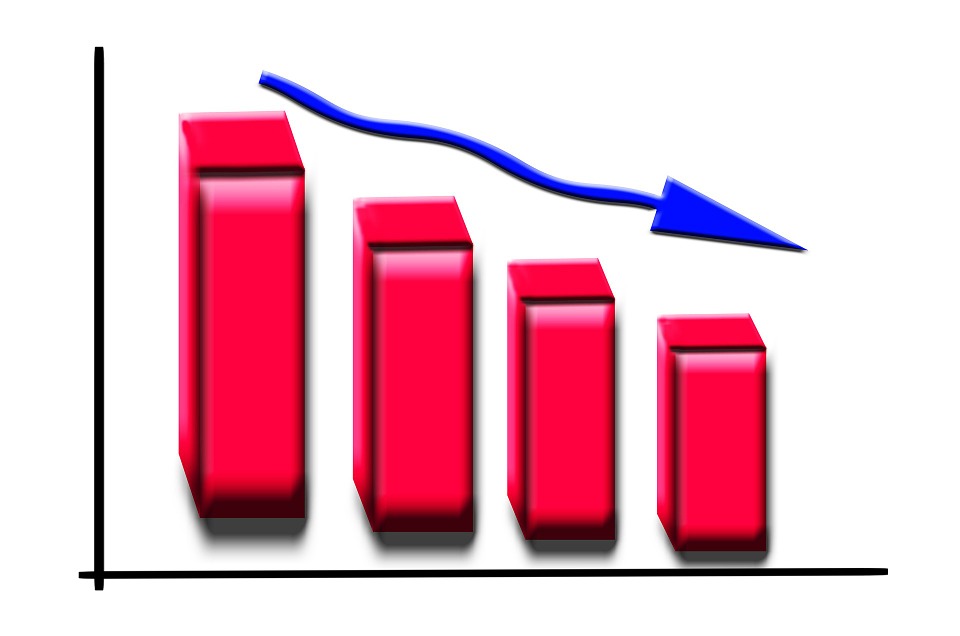
Hon. J. Thomas Marten
“Jury trials, both civil and criminal, are seriously on the decline. Whether you consider this a positive or a negative development, it is a fact…..’”
February 1, 2018
To Tell the Truth: Voir Dire in the Age of Neuroscience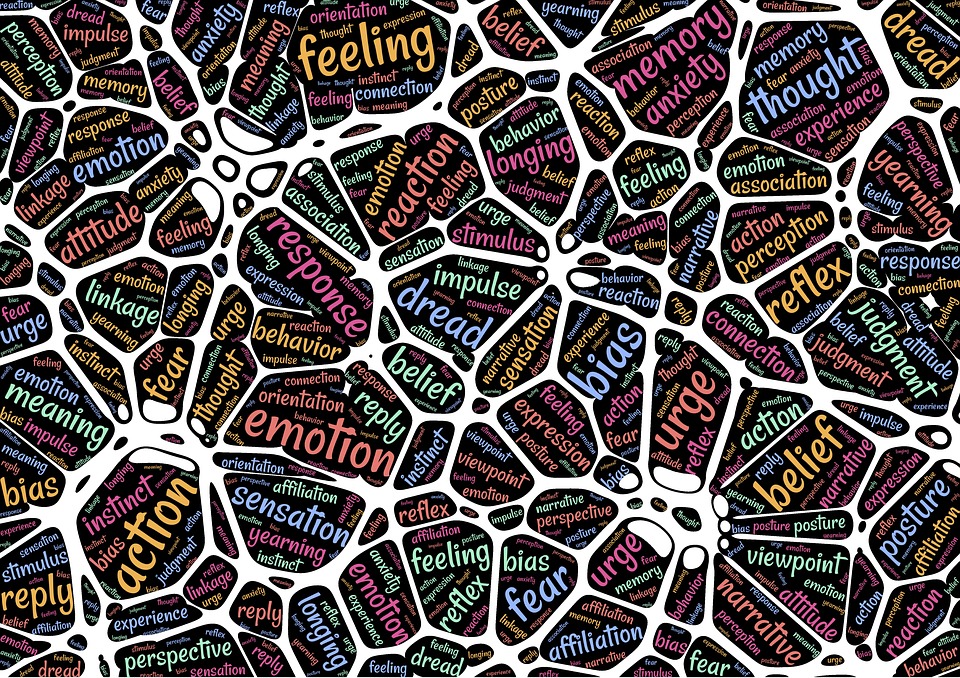
Jill Holmquist
“To tell the truth, the goal of voir dire examinations in jury selection has remained unchanged for centuries…..’”
February 1, 2018
The Long Shadow of the Civil Jury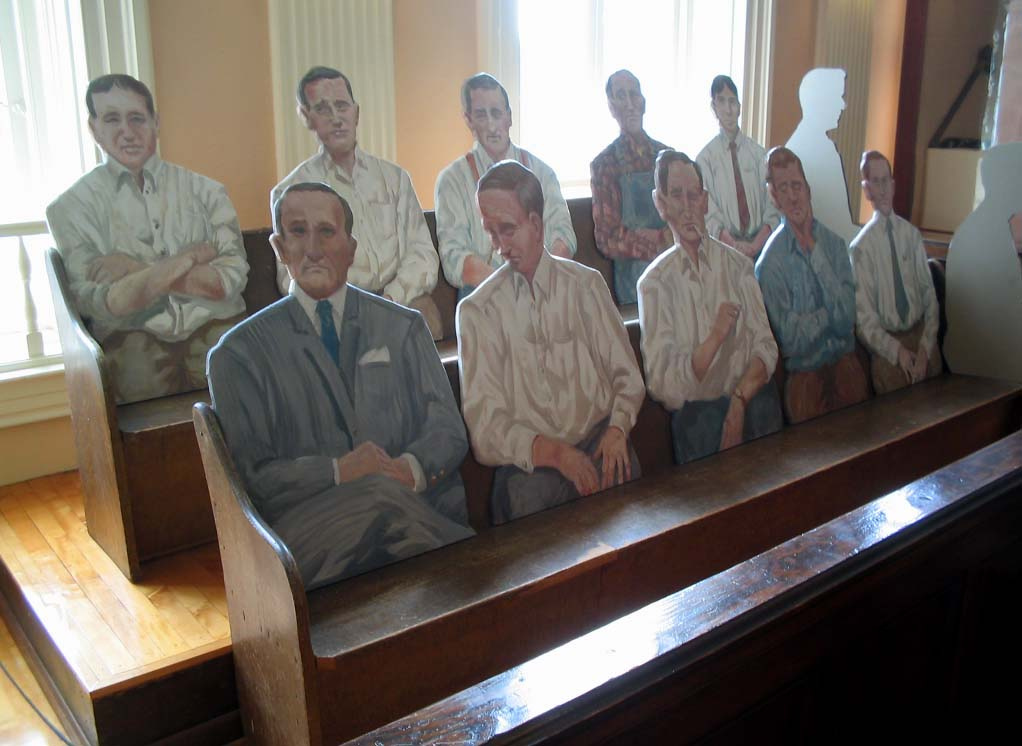
Anna Offit
“In 2017, 0.65 percent of federal civil cases were tried before juries— down fifteen percent from the year before….’”
November 17, 2017
Some Additional Thoughts on Juror Discussions During Trial and Juror Questions
Hon. J. Thomas Marten
“Those lawyers who bring significant civil trial experience to the bench are frequently surprised by the difference in perspective the change in position makes…’”
Concurrent Expert Evidence in the United States- Is There a Role for Hot Tubbing?
Adam E. Butt
““Hot tubbing” is the colloquial name for a process of adducing and testing expert evidence which is more formally known as concurrent expert evidence…’”
November 14, 2017
 Is There a Perception Problem with the American Jury System?
Is There a Perception Problem with the American Jury System?
Kacy Miller
“If you search for “jury duty” on social media, you’re likely to find more than a few posts of people whining about it…’”
November 13, 2017
We Hold These Jury Decision-Making Truths to be Self-Evident
Charlotte A. Morris, M.A.
“The Civil Jury Project’s 2016 survey of more than 900 civil attorneys nationwide reveals that nearly one-third (30%) of those surveyed …’”
October 26, 2017
How Judges Can Further the Value of the Civil Jury Trial 
Stephen D. Susman
“Six years ago, when I turned 70, I began thinking that I might end my career as a trial lawyer by teaching trial advocacy…’”
September 19, 2017
The Dematerialization of the Civil Jury Trial in American Jurisprudence
Honorable Bronwyn C. Miller and Honorable Meenu Sasser
“Trial by jury is a highly valued attribute of American government. It was regarded by the founders as ‘an essential bulwark of civil liberty.’”
August 25, 2017
Do Jurors Know About Damage Caps? 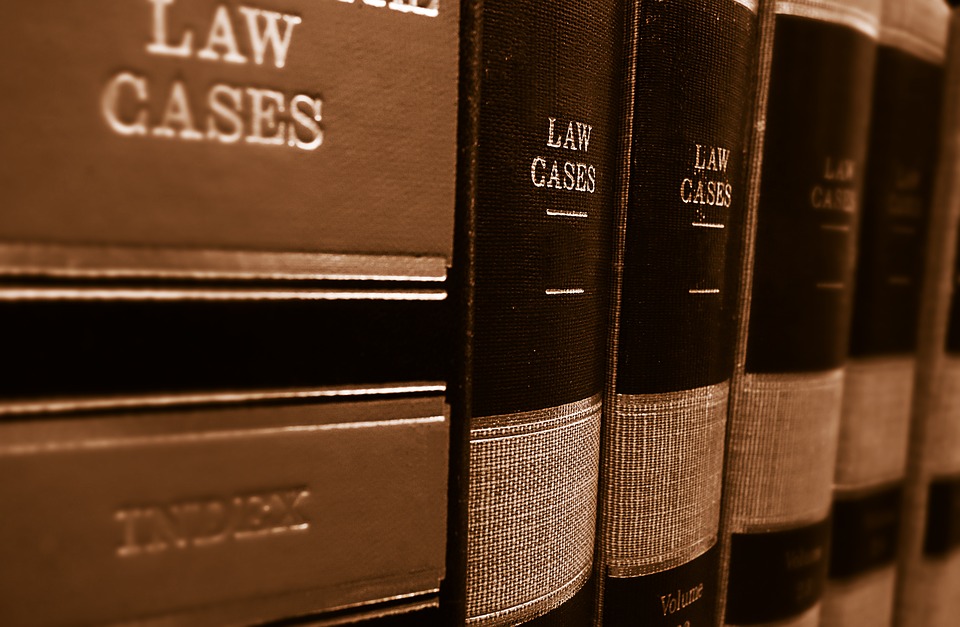
Deepa Devanathan
“Many states have instituted damage caps on non-economic damages in medical malpractice cases. The practical effect of a…”
August 23, 2017
Understanding Bias:
Preserving Peremptory Challenges, Preventing their Discriminatory Use, and Providing Fairer and More Impartial Juries 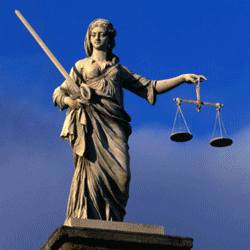
Richard Gabriel
In 1936, Clarence Darrow wrote an article for Esquire magazine called “How to Pick a Jury,” containing sage advice on the art and skill…
August 21, 2017
Innovative Jury Trials 
Stephen Susman
The CJP was established at NYU School of Law in the fall of 2015 as the only academic center in the nation studying why jury trials are disappearing…
August 9, 2017
Empowering Jurors as Good Will Ambassadors 
United States District Judge Mark Bennett
Since my first day as a federal district judge twenty-three years ago, one of my most important goals in jury trials has been to empower jurors…
July 24, 2017
Jury Duty: A Founding Principle of American Democracy
United States District Judge Jack Zouhary
As federal judges, my colleagues and I are privileged to host naturalization ceremonies. We are always encouraged to see the eagerness of civically educated,…
July 11, 2017
Jurors Play a Crucial Role in the Operation of Democracy in our Nation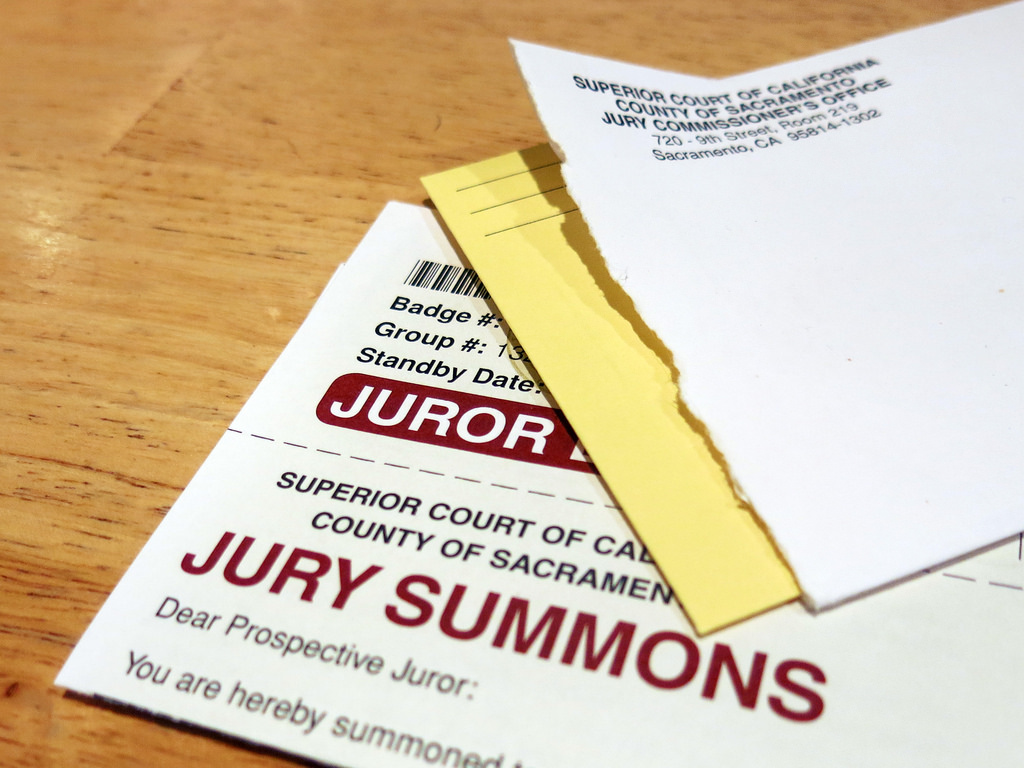
United States District Judge Marvin E. Aspen, United States District Court
Although news media and commentators routinely scrutinize citizen alienation from our elected and appointed officers and representatives of the…
July 3, 2017
Federalized Tort Reform
Deepa Devanathan
While Former FBI Director James Comey testified in front of Congress about President Trump obstructing justice and while citizens protest TrumpCare (Trump’s new healthcare…
June 3, 2017
Saving Jury Trials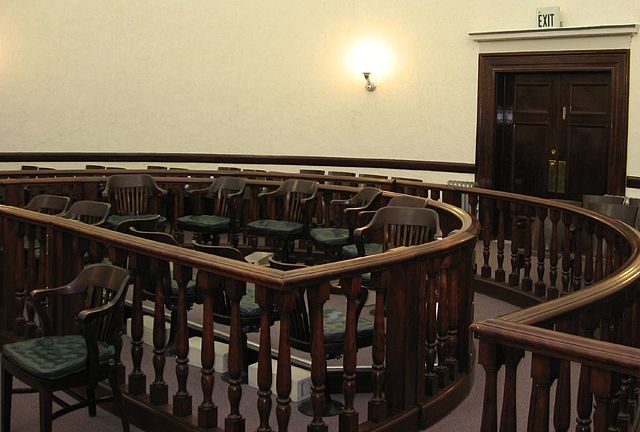
Stephen D. Susman
My project to save jury trials was born exactly 15 years ago, at a Saturday morning session of our 40th reunion with Prof. Akhil Amar talking about the Constitution…


